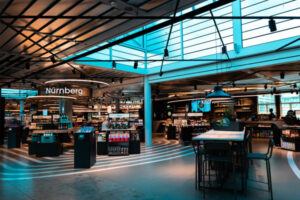By Neil Barber
Europe has the largest health and fitness market in the world, with a value of over €23.5bn. People living in Switzerland pay the highest average monthly gym membership, followed by consumers in Ireland and the UK. It is a booming business that exemplifies wider retail and leisure trends. In a world where consumers are becoming ever more conscious of how they balance their busy lifestyles with their physical and mental wellbeing.
We’ve begun to recognize the positive impact wellbeing initiatives can have on our retail and leisure developments, and the story continues with climate change now moving to the top of the agenda. It’s not just about the wellbeing of the self now but the wellbeing of the world. As we welcome a new generation of media influencers focusing on climate change whose message is resonating with so many in society, it is important that the retail industry responds to consumers’ new priorities.
Retailers are increasingly adopting an experience-led approach to their stores in reaction to the well-documented challenges facing the sector at large. It creates a sense of place and allows retail centers to serve as a community hub for those living in the local area–a place for people to meet and share interests. This is a return perhaps to how town centers have been used more historically and a starkly reduced focus on the love affair with consumption that dominated the latter part of the twentieth century and the opening years of this one.
At Islington Square in North London, we’ve put together a line-up of brands focusing on the environment, family, community and wellbeing. Maggie & Rose is a family members’ club that encourages wellness for parents and children. It has organic kitchens and dining areas for families to play, socialize and eat together. The neighboring gym, Third Space, has kept family in mind too. It has a “Little Space” with classes for children which run alongside the adult classes – perfect for busy parents. OmNom have also joined the line up with their first-ever restaurant for the brand. It sells plant-based food, non-alcoholic wine and includes a wellbeing hub for people to enjoy “mindfulness sessions” and yoga. This offering not only appeals to the growing number of climate conscious consumers, but it is expected to increase footfall and dwell time at the development. It’s truly unique.

As the high street learns how to adapt to the changing retail landscape and the expectations of today’s consumer, it is more alternative uses, like those mentioned above, that we think will entice shoppers. Buying online might be convenient but customers still want to try, touch and test products or services they are spending their money on. You really can’t replace human-to-human interaction, especially in an era where the world wants to re-kindle its sense of community.
We have a responsibility as property developers and asset managers to remember to listen to our consumers and to what they consider to be important. The themes of wellbeing, environmental consciousness and a renewed value placed on a sense of community are clearly central to how retailing spaces can deliver what customers of today want. That will be our focus for 2020. But the trick will be ensuring we don’t stop listening, as I am in no doubt that new and additional themes will arise in 2021 and beyond. Retail destinations have never needed to be more agile.






